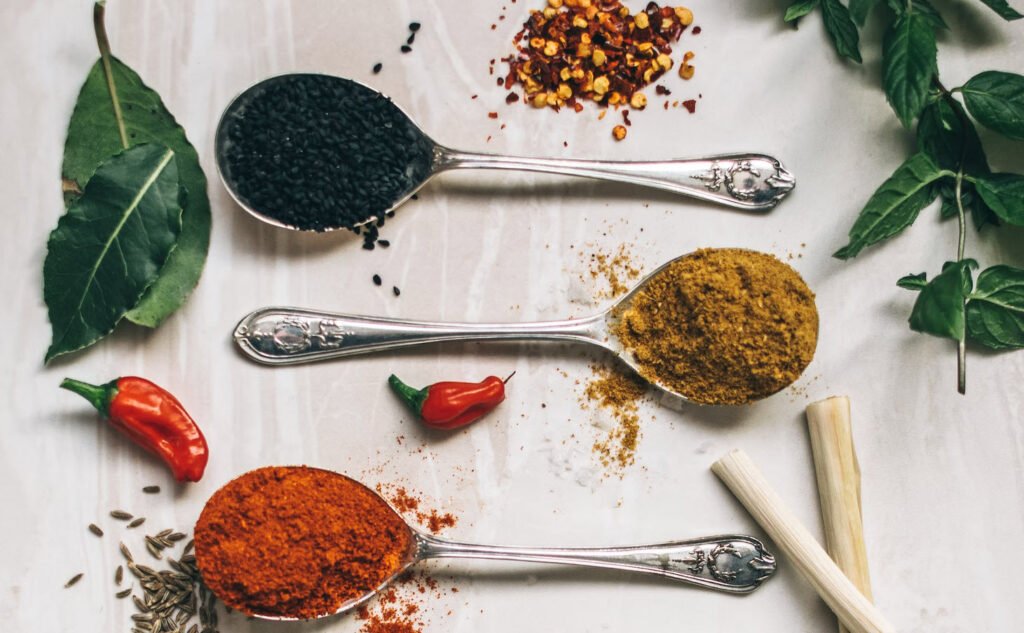
There are many herbs that are believed to have therapeutic properties that can support various organs in the body. Herbs can be used to nourish and support specific organs in the body. Here are some commonly used herbs and their traditional uses:
- Brain – Gingo Biloba, Ginseng, Cayenne Pepper, Kelp
- Heart – Cacao, Garlic, Motherwort, Turmeric
- Lungs – Mullein, Yarrow, Yerba Santa, Peppermint
- Liver – Milk Thistle, Dandelion, Artichoke, Burdock Root
- Stomach – Chamomile, Licorice, Goldenseal, Fennel
- Kidney – Ginger, Bilberry, Cranberry, Astragalus
1) Brain – Gingo Biloba, Ginseng, Cayenne Pepper, Kelp
The brain is the body’s control center, responsible for regulating all bodily functions. It consists of several structures, including the cerebrum, cerebellum, and brainstem. It is in charge of functions like movement, sensation, thought, memory, and emotions. It is also involved in the endocrine and immune systems.
Proper nutrition and exercise, as well as cognitive activities and social engagement, can all benefit brain health. However, before beginning any new supplement regimen to support brain health, it is critical to consult with a healthcare professional.
(a) Gingo Biloba
Ginkgo Biloba is a herb derived from the Ginkgo tree’s leaves. It is frequently used to increase blood flow to the brain and improve cognitive function, memory, and concentration.
It is also used to treat anxiety and depression symptoms. However, it is not recommended to be used as a sole treatment for conditions; before taking any supplements, consult with a healthcare professional. Ginkgo Biloba may interact with some medications and is not appropriate for everyone.
(b) Ginseng
Ginseng is a herb that is commonly used as a natural remedy to boost energy, strengthen the immune system, reduce stress, and improve overall well-being.
It is commonly used in traditional medicine and is available in capsules, teas, and extracts. Ginseng comes in several varieties, including American and Asian ginseng, each with its own set of benefits. Before beginning any new supplement regimen, consult with a healthcare professional, and be aware that ginseng may interact with certain medications.
(c) Cayenne Pepper
Cayenne pepper is a type of chilli pepper that is commonly used to add heat and flavor to dishes. It is also used as a stimulant, to increase circulation, and as a pain reliever in herbal medicine. It can also be used to treat digestive issues like gas and bloating. According to some studies, it may have potential benefits for heart health and weight management.
It is important to note, however, that excessive consumption of cayenne pepper may cause irritation or allergic reactions, and it is always best to consult with a healthcare professional before taking supplements.
(d) Kelp
Kelp is a type of seaweed that is commonly used to supplement iodine and other minerals. It is also high in antioxidants and vitamins like Vitamin K, C, and B-Vitamins. It is frequently used as a dietary supplement to help support thyroid function and overall health. Kelp can be consumed in a variety of forms, including capsules, powder, and as a seasoning in food.
However, it is important to note that consuming large amounts of Kelp may result in an excessive intake of iodine, which can have negative effects; therefore, before beginning any new supplement regimen, consult with a healthcare professional.
2) Heart – Cacao, Garlic, Motherwort, Turmeric
The heart is a Garlicmuscular organ responsible for the circulation of blood throughout the body. It is located in the chest and is in charge of delivering oxygen and nutrients to the cells of the body. The heart is made up of four chambers and pumps blood in a rhythmic pattern that is controlled by electrical signals.
High blood pressure, high cholesterol, obesity, smoking, and a poor diet can all have an impact on the heart’s health. Regular exercise, a healthy diet, and quitting smoking can all benefit heart health. If you have any concerns about your heart health, you should consult a physician.
(a) Cacao
Cacao is the raw form of chocolate made from the cacao tree’s beans. It contains a lot of antioxidants, flavonoids, and minerals like magnesium and iron. It has traditionally been used to improve cardiovascular health, mood, and cognitive function. Cacao can be consumed in a variety of forms, including powder, nibs, and as a component of chocolate bars.
(b) Garlic
Garlic is a widely used herb in both cooking and traditional medicine. It contains compounds such as allicin and sulfur, which are thought to have health benefits. Garlic is frequently used to lower cholesterol and blood pressure, improve heart health, and strengthen the immune system. Garlic can be eaten raw, cooked, or as a supplement.
However, it is important to note that consuming large amounts of garlic may have negative effects; therefore, before beginning any new supplement regimen, consult with a healthcare professional, especially if you are taking any blood-thinning medication.
(c) Motherwort
Motherwort is a herb that has traditionally been used to promote heart health and alleviate stress and anxiety. It is thought to have a calming effect on the nervous system and may also aid in the regulation of menstrual cycles. It is most commonly consumed as a tea, tincture, or supplement.
(d) Turmeric
Turmeric is a spice that is widely used in both cooking and traditional medicine. It contains curcumin, which is thought to have anti-inflammatory and antioxidant properties. It is commonly used to alleviate pain and inflammation, enhance brain function, and promote heart health. Turmeric can be eaten as a spice, a supplement, or as a component of curcumin supplements.
3) Lungs – Mullein, Yarrow, Yerba Santa, Peppermint
The lungs are organs in the chest that are in charge of exchanging oxygen and carbon dioxide. They are divided into two sections: bronchi and alveoli.
They function by absorbing oxygen and emitting carbon dioxide, allowing the body to produce energy. Smoking, air pollution, and lung disease can all hurt lung health. Regular exercise, a healthy diet, and refraining from smoking can all help to improve lung health.
(a) Mullein
Mullein is a herb that has traditionally been used to treat respiratory issues. Its leaves and flowers contain anti-inflammatory, expectorant, and antimicrobial compounds. It is frequently used to treat bronchitis, asthma, and other respiratory conditions. Mullein can be taken as a tea, tincture, or supplement.
(b) Yarrow
Yarrow is a medicinal herb that has been used for centuries. It contains substances with anti-inflammatory, antispasmodic, and antimicrobial properties. It is commonly used to treat cold, flu, and fever symptoms.
Yarrow can be taken as a tea, tincture, or supplement.
(c) Yerba Santa
Yerba Santa is a herb native to North America’s western regions. It has traditionally been used to treat respiratory ailments such as bronchitis and asthma. It is also thought to have expectorant properties, which aid in the relief of chest and lung congestion.
(d) Peppermint
Peppermint is a herb known for its invigorating and refreshing aroma. Peppermint leaves contain menthol, a cooling compound that is commonly used to relieve muscle pain and discomfort, relieve congestion, and aid digestion. Peppermint can be taken as a tea, tincture, or supplement.
4) Liver – Milk Thistle, Dandelion, Artichoke,
The liver is an important organ located in the upper right quadrant of the abdomen. It is in charge of toxin removal, bile production, and Burdock Rootmetabolism regulation. A healthy lifestyle that includes a well-balanced diet, regular exercise, and abstaining from alcohol and drugs can all help to support liver health. If you have any concerns about your liver’s health, you should consult a doctor.
(a) Milk Thistle
Milk Thistle is a common herb used to support liver health. It contains silymarin, which is thought to have antioxidant and anti-inflammatory properties; it protects the liver from toxins and supports its ability to regenerate. Milk Thistle is available as a supplement, tea, or tincture.
(b) Dandelion
Dandelion is a diuretic herb that is commonly used to increase urine flow and flush toxins from the kidneys. It also contains antioxidants, which may aid in the health of the liver and digestion. Dandelion is available as a supplement, tea, or tincture.
(c) Artichoke
Artichoke is a vegetable that can help with digestion and liver function. It contains compounds like silymarin and cynarin, which are thought to have antioxidant and choleretic properties, promoting bile flow and improving liver function. Artichokes can be eaten as a whole vegetable, as a supplement, or as an extract.
(d) Burdock Root
Burdock root is a popular root vegetable in traditional medicine. It is commonly used to support liver health and improve digestion and is thought to have detoxifying and diuretic properties. Burdock root can be eaten or taken as a supplement in the form of tea, tincture, or capsule.
5) Stomach – Chamomile, Licorice, Goldenseal, Fennel
In the digestive system, the stomach is a muscular, hollow organ that grinds food and mixes it with digestive juices. It stores the chyme mixture before transporting it to the small intestine for further digestion and absorption.
(a) Chamomile
Chamomile, also known as Matricaria chamomilla or Chamomilla Recutita, is a European and Asian herb. Its calming and anti-inflammatory properties make it popular in teas, supplements, and topical ointments. It is also used to treat several conditions such as anxiety, insomnia, and skin irritation.
(b) Licorice
Glycyrrhiza glabra, or licorice, is a plant native to Europe and Asia. Its root is widely used in herbal medicine and food, and it contains compounds with anti-inflammatory, anti-viral, and anti-cancer properties. It is also used to treat several conditions such as stomach ulcers, sore throats, and indigestion. If consumed in large quantities, it can cause high blood pressure, potassium loss, and water retention.
(c) Goldenseal
A perennial herb native to North America is called goldenseal. It has long been used as a digestion aid and immune system booster. It is also a typical component of home treatments for skin problems. The underground stem and root are both utilized medicinally. One of the most often used herbs for herbal supplements in the US.
(d) Fennel
The Mediterranean region is home to the perennial herb fennel. It is renowned for its peculiar flavor and scent, which are licorice-like. It is frequently used in cooking, especially in Indian and Mediterranean dishes. Additionally, fennel seeds are frequently used to assist digestion and freshen breathing.
The fennel plant’s seeds, leaves, and bulbs are all edible and can be consumed fresh or dried. Additionally, the bulb and stem can be consumed raw or cooked in salads. Additionally, the seeds are utilized as a herbal supplement.
6) Kidney – Ginger, Bilberry, Cranberry, Astragalus
The back of the abdomen houses a pair of organs called the kidneys. They generate hormones that control red blood cell and bone health, filter waste from the blood, and control electrolyte balance, blood pressure, and blood flow. They assist with blood filtration and keeping the body’s electrolyte balance in check. If left untreated, renal failure can be fatal. Kidney issues can cause this.
(a) Ginger
A flowering plant endemic to Southeast Asia is ginger. Both traditional medicine and spices are frequently made from its root. It smells and tastes strongly pungent. Common uses for it include flavoring food and treating pain, nausea, and digestive problems naturally. It is also utilized as an antioxidant and anti-inflammatory in several traditional medical systems.
(b) Bilberry
A perennial plant with natural ranges in Europe and North America is the bilberry. Its fruit is a tiny, blue-black berry with a shape resembling a blueberry. Antioxidants, particularly anthocyanins, which are well-known for having anti-inflammatory qualities, are abundant in them. Traditional uses of bilberries include aiding good digestion, preserving healthy blood vessels, and enhancing vision.
The bilberry plant’s leaves and berries are used as medicines, and bilberry supplements are frequently offered for sale as tablets, capsules, and teas.
(c) Cranberry
Evergreen shrubs that grow in bogs or marshes include cranberries. Because of their abundance in antioxidants, the small, red berries are frequently utilized to both prevent and treat urinary tract infections. For this aim, cranberry juice and supplements are frequently employed. Both fresh and dried cranberries are edible and can be used in baking and cooking.
(d) Astragalus
Astragalus is a perennial herb native to China and other parts of Asia. Its root is used in traditional Chinese medicine and has been used for centuries to boost the immune system, improve heart function, and protect the liver. It is also used to treat various ailments such as colds, flu, and upper respiratory tract infections.
Astragalus is available in various forms such as capsules, tea, and extract. It is considered a tonic herb in traditional Chinese medicine and it is one of the most widely used in the world.
You may also read:
- Nourishing Passion – Specific Foods to Promote Sexual Health
- The Power of Compound Exercises – 5 Essential Moves for Full-Body Strength
- 11 Powerful Poses to Help You Shed Pounds
- Cold Water vs. Hot Water – A Comparison of Health Benefits
- The 6-Day Total Body Workout Routine
- Essential Post-Workout Stretches for a Better Recovery
- Yoga Mudras and Their Positive Effects on Health
- 6 Quick Morning Workouts You Can Do at Home
- Breathing Exercises To Increase Oxygen Levels And Fight Stress
- 5 Yoga Poses For Better Bone Health








